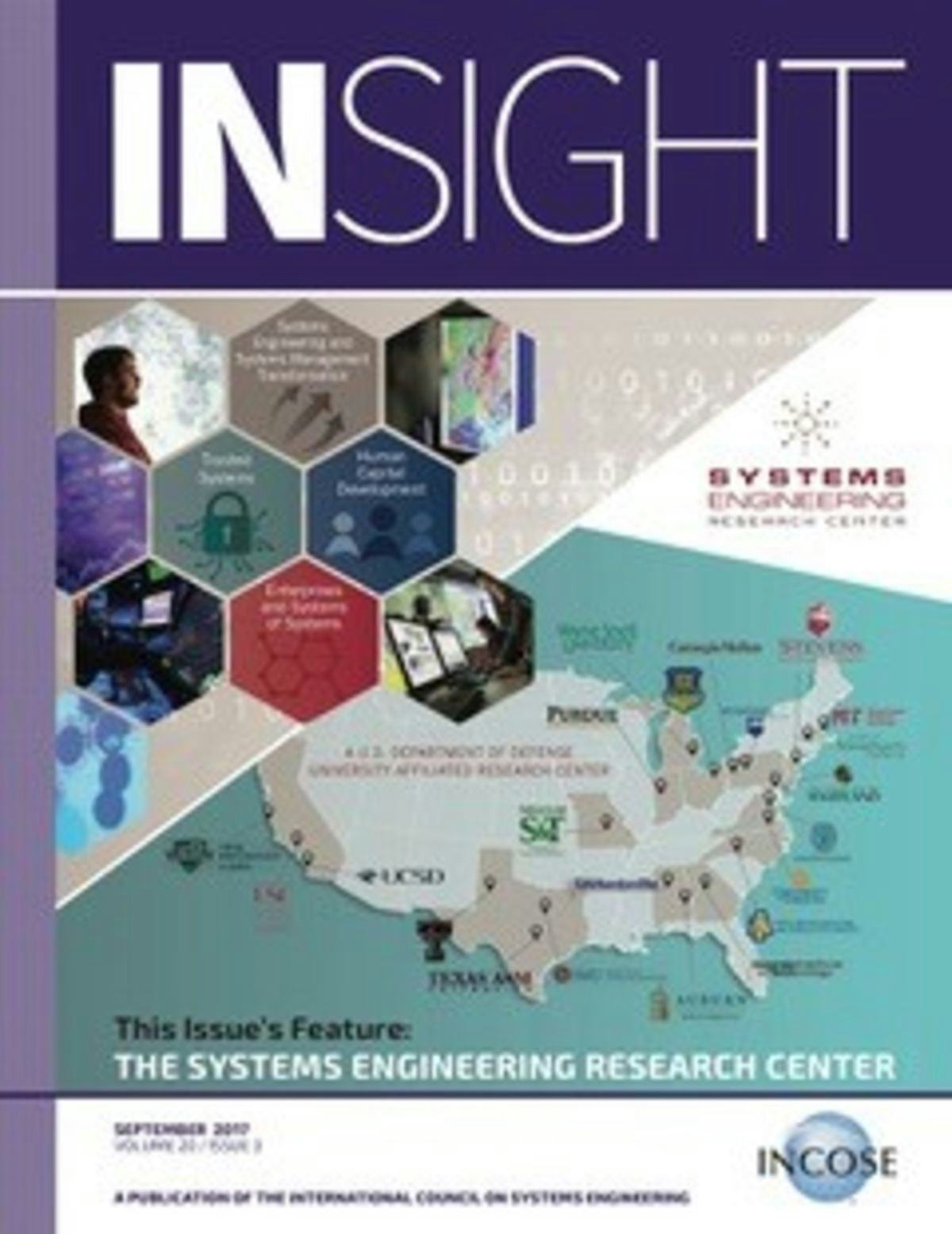Spotlight on the SERC at Stevens: Cover Story in Prominent INCOSE Publication
The focus of the September 2017 issue of INSIGHT magazine is “transitioning Systems Engineering Research Center (SERC) research into practice”
Though coined back in the 19th Century by Russian playwright and short story author, Anton Chekhov, the quote, “Knowledge is of no value unless you put it into practice,” rings even more true in the 21st Century.
As today’s world grows increasingly complex and interconnected, important modern systems challenges must be addressed. The Systems Engineering Research Center (SERC), led by Stevens Institute of Technology, is on the forefront of systems research to advance the practice of systems engineering.
“Conducting systems research and putting the results into practice is a key aim of the SERC,” says Dr. Dinesh Verma, executive director of the SERC at Stevens, and founding dean of the Stevens School of Systems and Enterprises. “We have the advantage of working with researchers from 20 collaborating universities across the U.S. to close the gap between development of knowledge and the application of this knowledge to solve modern-day systems challenges.”
INSIGHT, the magazine of the International Council on Systems Engineering (INCOSE) recently profiled the SERC at Stevens, saying that the knowledge generated by the army of SERC researchers, encompassing faculty, staff and students, is “affecting how systems engineering is performed around the planet.”
INCOSE is the world's largest professional network of systems engineers. Through its resources and diverse publications, INCOSE provides informative articles on the practice of systems engineering in industry, government and all sectors of society.
In its profile of the SERC, INSIGHT editors published select articles authored by SERC researchers, including Stevens faculty and students. Excerpts from the INSIGHT cover story are highlighted below, edited for brevity and clarity:
“A Complete Set of Systems Thinking Skills” Authors include: Dr. Jon Wade, research professor and division director of Systems and Software Engineering from Stevens, and Ross D. Arnold, a PhD candidate in systems engineering from Stevens
The paper “proposes a complete set of systems thinking skills for use across many disciplines.” Proposed skills “will be the basis for the development of an assessment rubric to measure systems thinking maturity to uncover effective methods of systems thinking assessment, and ultimately, delivering the vastly important concept of systems thinking to a broader audience.”
“Semantically-enabled Model-based Systems Engineering of Safety-critical Network of Systems” Authors include: Dr. Mark Blackburn, research associate professor from Stevens
The article “describes a novel approach to the development and integration of semantics to the model-based systems engineering and operation of safety-critical networks of systems. The authors exercise these concepts in a collision avoidance problem involving autonomous agents at a traffic intersection.”
“Systems Engineering Simulation Experience Design: Infrastructure, Process and Application” _Authors include: Dr. Richard Turner, research professor from Stevens, Dr. Jon Wade, research professor and division director of Systems and Software Engineering from Stevens, and Peizhu Zhang, a doctoral student at the Stevens School of Systems & Enterprises.
_This article is the recipient of the INCOSE 2017 International Symposium best paper award on systems engineering training. It “proposes an initial taxonomy of experience archetypes to help development and reuse of experiences, and describes the experience design and development process using the systems engineering experience accelerator (SEEA) tool suite aimed at accelerating experience assimilation through immersive, simulated learning situations where learners solve realistic problems.”
The September 2017 issue of INSIGHT magazine is available on the INCOSE website.



